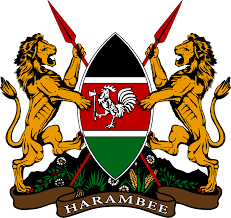Overview of the Finance Bill, 2025
The Finance Bill, 2025 is a legislative proposal introduced to amend various tax and fiscal laws in Kenya. It seeks to adjust provisions under existing Acts such as the Income Tax Act (Cap. 470), the Value Added Tax Act (No. 35 of 2013), the Excise Duty Act (No. 23 of 2015), and others. Its overall aim is to enhance government revenue, address administrative gaps, and align the tax system with current economic realities.
The Bill is set to commence on 1st July 2025, except for Sections 12 and 56, which become effective from 1st January 2026 (Clause 1, p. 1).
20 Harmful Taxes Impacting Common Citizens
VAT on Bread & Wheat Flour
Removal of VAT exemption will increase prices of this essential staple food
Clause 30, First Schedule Part I (p. 14-16)VAT on Cooking Gas (LPG)
Elimination of VAT exemption will raise household cooking fuel costs
Clause 30, First Schedule Part I (p. 14-16)Higher Excise Duty on Mobile Money
Increased rates on M-Pesa transactions will impact daily money transfers
Clause 38, Excise Duty Act (p. 18)Motor Vehicle Tax
New 2.5% tax on vehicle value will burden transport operators
Clause 51, Tax Procedures Act (p. 26)VAT on Sanitary Pads
Removal of zero-rating will make menstrual products less affordable
Clause 30, Second Schedule Part A (p. 17)Digital Service Tax Expansion
Broadened coverage will increase costs for online services
Clause 6, Income Tax Act (p. 7-8)Excise Duty on Fuel
Higher duty will trigger inflation across transport and goods
Clause 38, Excise Duty Act (p. 18)VAT on Financial Services
Removed exemption will increase bank charges and loan costs
Clause 31, VAT Act (p. 13)Withholding Tax on Digital Content
20% tax will reduce earnings for online creators
Clause 22, Third Schedule (p. 11-12)VAT on Electricity
Reintroduction will increase household electricity bills
Clause 31, VAT Act (p. 13)Excise Duty on Packaging
25% duty will raise prices of packaged goods
Clause 38, Excise Duty Act (p. 18-21)Higher Income Tax
35% rate reduces take-home pay for professionals
Clause 28, Third Schedule (p. 11-12)VAT on Motorcycles & Bicycles
16% VAT increases transport costs for commuters
Clause 30, First Schedule Part I (p. 16)Withholding Tax on Rent
7.5% tax will lead to higher housing costs
Clause 22, Third Schedule (p. 11-12)VAT on Sugarcane Transportation
Removal of zero-rating will increase sugar prices
Clause 30, Second Schedule Part A (p. 17)Tax on "Sale of Scrap"
1.5% withholding tax hurts informal recyclers
Clause 20, Income Tax Act (p. 10)VAT on Mobile Phones
16% creates barrier to digital access
Clause 30, First Schedule Part I (p. 16)Higher Excise on Glass/Plastics
35% duty increases construction costs
Clause 38, Excise Duty Act (p. 18-21)Minimum Top-Up Tax
15% tax may lead to price hikes on essentials
Clause 7, Income Tax Act (p. 6)VAT on Insurance Premiums
16% tax reduces health coverage affordability
Clause 31, VAT Act (p. 13)Key Concerns for Common Citizens
Food Security
Taxes on bread, sugar, and cooking gas will strain household budgets
Digital Divide
Higher costs for phones and data limit connectivity
Transport Inflation
Vehicle taxes and fuel hikes increase commute costs
Housing Affordability
Rent taxes worsen housing crisis
Informal Sector
Taxes on scrap sales hurt jua kali livelihoods
These changes prioritize revenue generation over social equity, disproportionately burdening low/middle-income Kenyans. Public consultation and targeted relief for essentials are critical to mitigate unrest.
Take Action Against the Finance Bill 2025
Join thousands of concerned Kenyans in opposing this bill that will increase the cost of living for ordinary citizens.
Share Your Experience
Civic Education and FAQ
Understanding the Finance Bill is key to grasping how Kenya funds its government and drives economic growth. The Finance Bill 2025 proposes tax and policy changes to support a budget of KES 3.914 trillion, aiming to reduce public debt and fund essential services.
